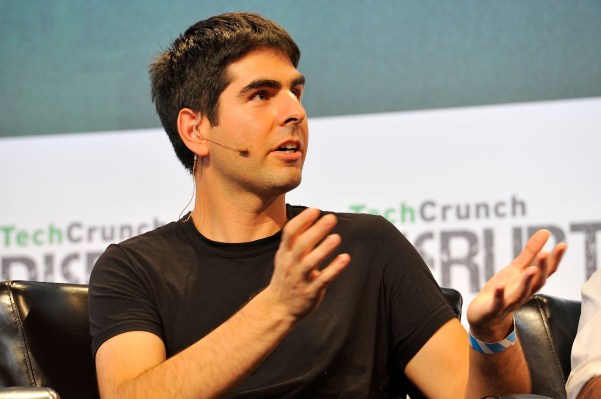General Catalyst Partners has promoted four people on its team. The announcements come just weeks after the venture firm, which has offices in Cambridge, Ma.; New York; and Palo Alto, closed on $845 million in new capital commitments from its investors.
Deepak Jeevankumar, who joined the firm almost six years ago, was made a partner in the firm’s newest funds. Spencer Lazar, who joined the firm three years ago, was made a partner. And Gabe Ling, who has been both a principal and a venture partner at General Catalyst in recent years, is now a partner.
General Catalyst has also promoted principal-turned-venture partner Niko Bonatsos to managing director, thanks largely to the wide array of interesting deals he has brought to the table in his five years with the firm, including the online real estate investment marketplace RealtyShares; the classroom platform ClassDojo; Paribus, a startup that gets shoppers refunds when a product they’ve purchased drops in price; and, most notably, the popular communications company Snapchat. (Bonatsos is also an angel investor in the messaging app Yik Yak and the gift care marketplace Raise.com.)
While talking with Bonatsos yesterday about his promotion, we asked him where he’s shopping now. Much to our surprise, he said he’s not making a whole lot of bets at the moment.
TC: You’ve identified some interesting startups in your career. What’s your most recent deal?
NB: Paribus, in September, with [General Catalyst managing director] Joel Cutler, but Paribus has moved New York and so Joel [based in Boston] will lead that investment moving forward. The other company hasn’t announced yet and doesn’t want to announce.
TC: So two companies in seven months. That’s maybe the average for a VC but it doesn’t seem like much.
NB: We’ve been very active. I see 10 to 15 companies each week. I haven’t been inspired, though.
We’re living in an interesting time, but I don’t think we’ve figured out what’s coming next. In 2008 and 2009, there was a confluence of accelerants, from Github to smart phones to app stores to Facebook for distribution. What’s the equivalent today? What the next computer platform, the next distribution engine?
TC: You don’t think Slack will be the next big platform, as many people seem to want it to be?
NB: It’s a fascinating company and a lot of people are using it. I definitely see opportunities for those who want to do productivity or business-related apps. But in the grand scheme, 800,000 [daily active users] is pretty small. [If I were developing] consumer stuff, I’d be focused on Facebook, Snapchat or Kik. I wouldn’t be doing it on top of Slack.
If they can prove they can make the jump and have regular consumers use it, though, it could be interesting.
TC: What about Snapchat? Some people think Snapchat has the edge right now; some think it will be gone in five years.
NB: Snapchat is TV for the iPhone generation. People use it to entertain themselves and communicate with their besties.
Now with Snapchat and why you hear more about it is that thirtysomething-year-olds are joining. When I joined in 2012, no one in my age group was part of it, except for techies who joined but didn’t really use it. [That slightly older demographic] has jumped on it now, and they use it differently than people in their 20s and teens, and it has to look and feel much more mainstream and have a lot more utility. And most new product features that are coming up next will [probably reflect that].
I don’t think it’s going to go away.
TC: Which platforms will lose their relevance, in your view?
NB: I think Twitter and Instagram are [challenged compared with] Snapchat. If Snapchat gets 100 photos from you every three days, as the most real time and accurate digital representation of the offline world, and [meanwhile] Instagram is cemented as the place where you have to submit the best photo, [it naturally gets less content]. Our lives are pretty boring. I post one photo to Instagram every few days and more during Christmas and my birthday.
Even if it’s the best content. It’s not enough. Instagram will feel like a museum. It’s a numbers game.
TC: So no hints at what’s next.
NB: It’s an interesting time. It doesn’t matter if you’re a huge company or a young developer, you don’t know who has the edge. I can’t wait to see what the next platform will be that will convince people to start experimenting with new stuff.
